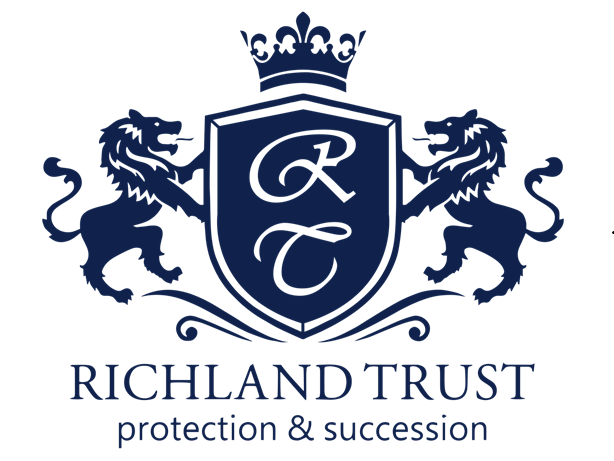Richland Trust Limited ("Richland") is incorporated in Hong Kong. Richland provides professional trustee services under the Trustee Ordinance (Cap. 29 of the Laws of Hong Kong) and the Trust and Company Service Providers regime administered by the Companies Registry of Hong Kong (licence number TC008399).
Richland was established to manage global assets for clients. Our team provides solutions with professionalism and rigor to meet our clients' different objectives in trusts. Our company handles the protection and confidentiality of all clients' assets and information with the most rigorous attitude.
Richland Trust Limited
Setting up Trusts
A trust arrangement serves to legally separate specific assets from one person (the "Settlor") by transferring the title and rights of ownership of such assets to another party (the "Trustee"). The Trustee holds, manages and/or distributes the assets for the benefit of specified persons or class of persons (the "Beneficiaries") according to a trust deed and the Settlor’s wishes during the trust period.
In Hong Kong, trust services provided by trustee are governed by well-established laws and regulations.
In Hong Kong, trust services provided by trustee are governed by well-established laws and regulations.
Origin of Trusts
The origin of trusts can be traced to many centuries ago in European history. Over the centuries, the use of trusts has spread from Europe to other regions of the World, e.g. in the U.S. and Asia.
There could be many reasons for setting up trusts, for example, history has taught us that concepts of cross-generational wealth succession and long-term personal wealth preservation could be subject to challenges in real life.
Common examples may be premature transfer of family wealth to beneficiaries before they acquire sufficient experience, capability and wisdom to manage the wealth; or successful entrepreneurs realising in hindsight that they have missed the opportunity to benefit from segregating between their businesses and personal wealth before abrupt changes happening to their businesses. As such, some astute individuals use trusts to preserve wealth through for the welfare of their own and their loved ones.
There could be many reasons for setting up trusts, for example, history has taught us that concepts of cross-generational wealth succession and long-term personal wealth preservation could be subject to challenges in real life.
Common examples may be premature transfer of family wealth to beneficiaries before they acquire sufficient experience, capability and wisdom to manage the wealth; or successful entrepreneurs realising in hindsight that they have missed the opportunity to benefit from segregating between their businesses and personal wealth before abrupt changes happening to their businesses. As such, some astute individuals use trusts to preserve wealth through for the welfare of their own and their loved ones.
- Asset Protection
- Estate Planning
- Tax Benefits
- Control Over Asset Distribution
- Privacy
- Support for Dependents
- Management of Family Business
- Philanthropic Goals
- Conflict Resolution
- Long-Term Financial Planning
